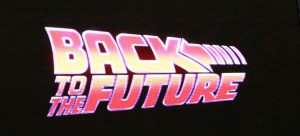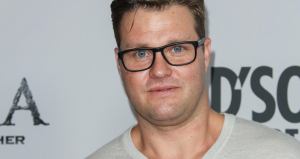Filmmaker Jane Campion returns to the big screen for the first time in over a decade with The Power of the Dog, an astonishing Western challenging both the performers and the audience. The movie is a slow-burning, tension-filled masterpiece centered around Benedict Cumberbatch‘s best film performance yet. Campion reminds audiences what a Western is completely stripped of the basic white hat versus black hat plot.
Based on the 1967 novel by Thomas Savage, The Power of the Dog is set in 1925 Montana, where brothers Phil (Cumberbatch) and George Burbank (Jesse Plemons) own a ranch. The lives of these two men – who are only connected because they share the same parents – are changed forever when they stop at Rose Gordon’s (Kirsten Dunst) inn and restaurant during a cattle drive. George soon falls in love and marries Rose, whose shy son Peter (Kodi Smit-McPhee) spends the first months of George and Rose’s marriage at school. During a school break, Peter returns to the Burbank ranch and Phil turns his attention from making Rose’s life hell to taunting Peter. But Phil begins thinking Peter could be a blank slate, shaped in the way Bronco Henry once did. Peter is far from that, though, and Phil’s underestimation of him helps build the tension.
Videos by PopCulture.com
Bronco Henry is the film’s Rebecca, a character whose presence hangs over everything but is never seen. Phil loved Bronco Henry and revered him, to the point where Phil built a shrine to him in the barn. While George barely remembers Henry’s existence, Phil sees the most important person to ever live. It’s just one of the many ways the two brothers diverge. George seeks love and an escape from strangling loneliness. When Plemons tells Dunst he was crying because he thought about how nice it was to no longer be alone, it feels like an overwhelming release thanks to his performance. It’s the scene that earned Plemons his surprising Oscar nomination.
Phil is looking for something different in life. He doesn’t seem lonely on the surface because he has men around him at all times. Instead, he’s looking for someone to impress him or someone who has the traits Bronco Henry saw in him long ago. The inner thoughts running through Phil’s mind are on full display thanks to Cumberbatch’s performance. A voiceover would be extraneous. Campion pulls out an incredibly nimble performance that can change on a dime from scene to scene. Smit-McPhee is up to the challenge though, bringing out the seething frustration bubbling under Peter’s surface. The performance from Smit-McPhee makes it easy to feel the sense of dread building up. Something is bound to happen, and even though the tension doesn’t build to a gunfight, there is still a kind of violence on its way.
Campion’s script is a tense tribute to the source material, even splitting into five chapters. She finds solutions to all issues that arise when translating text to screen. Ari Wegner’s cinematography and Johnny Greenwood’s score bring to life descriptions of beautiful vistas and feelings that might seem only possible in text. Wegner’s work isn’t showy in as much as a straightforward tribute to the beauty of the New Zealand scenery that plays Montana perfectly.
The Power of the Dog is both a tribute to the great psychological Westerns of the past and proof that the genre can survive into the 21st Century as a vehicle to continue telling more stories that examine the inner workings of the human mind. Campion took the structure of Western classics to tell a surprisingly exciting story that has to be seen multiple times. There are many threads playing out in this movie that come together as perfectly as the rope Phil is obsessed with making. The Power of the Dog is now streaming on Netflix.








